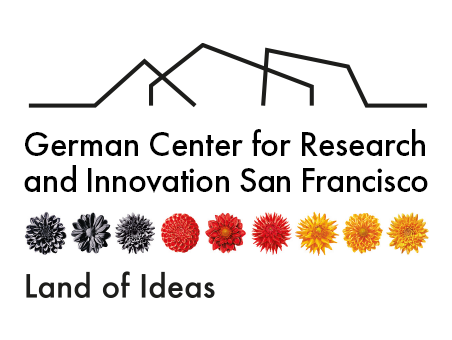Information Trip for Senior Administrators of German Institutions of Higher Education
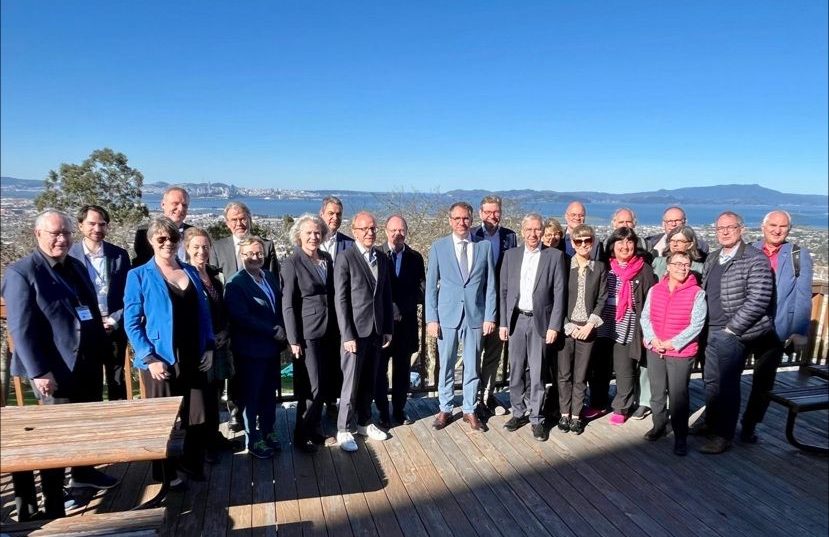
DWIH San Francisco welcomed a group of twenty-one top representatives from German higher education institutions — comprising of presidents, chancellors, and vice presidents for international affairs of German universities — to participate in a university policy information trip in the San Francisco Bay Area from March 10th to March 16th, 2024. This visit aimed to expand knowledge of the West Coast higher education systems to discuss the possibilities for cooperation between the US and German higher education institutes. Participants visited important institutions and actors in the higher education realm, as well as non-profits promoting innovation in the Greater Bay Area.
The goal of the visit was to capture inspiration from the Bay Area — one of world’s most vibrant research and innovation ecosystem. The group dived deep into recent advancements in AI and data sciences, sustainable energy production and agriculture, diversity, inclusion and social innovation, research security. Moreover, participants bolstered existing partnerships and ties with their contacts in the region and planted the seeds for new collaborations in the future.
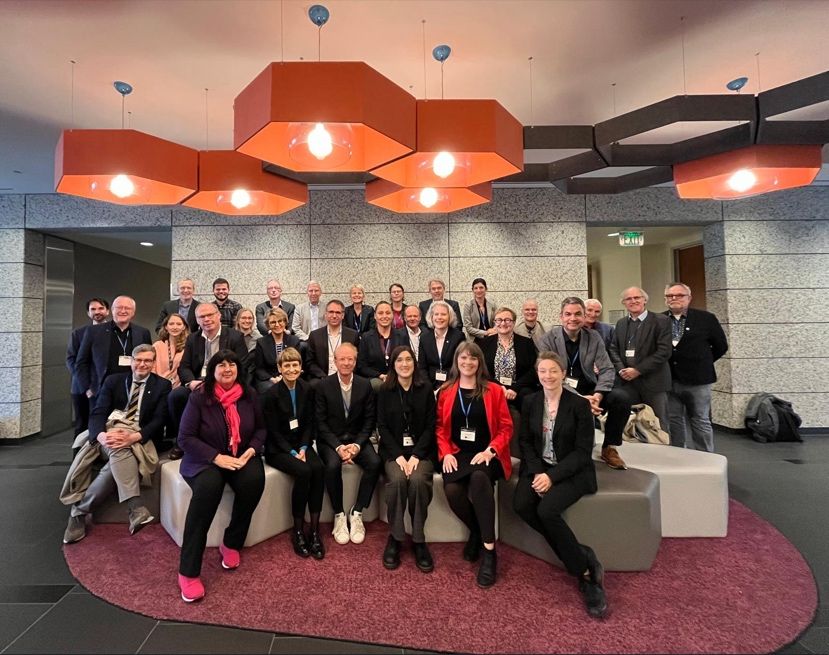 The trip kicked off with a visit to the German Hub in Downtown San Francisco, where Kai Sicks, General Secretary of the DAAD greeted participants. Zahar Barth-Manzoori, Director of DWIH San Francisco, Beate Antonich, Senior Advisor for Science and Technology at the German Consulate General San Francisco, Hanni Geist, Senior Manager of University Partnerships at DAAD, and Benedikt Brisch, Director of DAAD/DWIH New York then made introductions. The group then visited Gladstone Institutes at University of California, San Francisco, where they learned about how the Melanie Ott Lab focuses on human host factors that restrict or enable viral infections, studies complex primary cell systems, and develops models for potential drugs to thwart new pathogens. Following the lab visit, they spent the afternoon at San Francisco State University to learn about the role of state universities in increasing upward mobility. Our delegation was inspired by the importance of intercultural learning and student development through best practices in inclusive pedagogy and heard from Marilyn Jackson, Jamillah Moore, Amy Sueyoshi, Tendai Chitewere, Arno Puder, and Frederik Green.
The trip kicked off with a visit to the German Hub in Downtown San Francisco, where Kai Sicks, General Secretary of the DAAD greeted participants. Zahar Barth-Manzoori, Director of DWIH San Francisco, Beate Antonich, Senior Advisor for Science and Technology at the German Consulate General San Francisco, Hanni Geist, Senior Manager of University Partnerships at DAAD, and Benedikt Brisch, Director of DAAD/DWIH New York then made introductions. The group then visited Gladstone Institutes at University of California, San Francisco, where they learned about how the Melanie Ott Lab focuses on human host factors that restrict or enable viral infections, studies complex primary cell systems, and develops models for potential drugs to thwart new pathogens. Following the lab visit, they spent the afternoon at San Francisco State University to learn about the role of state universities in increasing upward mobility. Our delegation was inspired by the importance of intercultural learning and student development through best practices in inclusive pedagogy and heard from Marilyn Jackson, Jamillah Moore, Amy Sueyoshi, Tendai Chitewere, Arno Puder, and Frederik Green.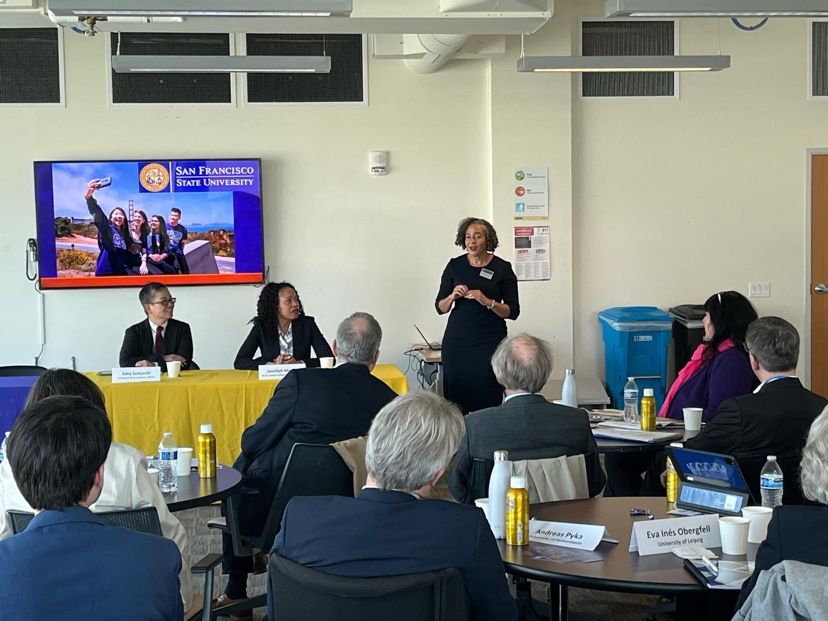
The delegation departed the next day for Stanford University, where they learned about how the tremendous advance of AI has raised issues on how AI tools can be used to benefit people. They began with a visit to the Stanford Institute for Human-Centered Artificial Intelligence (HAI), where they heard Julian Nyarko, Associate Professor of Law, give insights about how the university emphasizes interdisciplinary collaborations by faculty from multiple departments to advance AI research, education, policy and practice.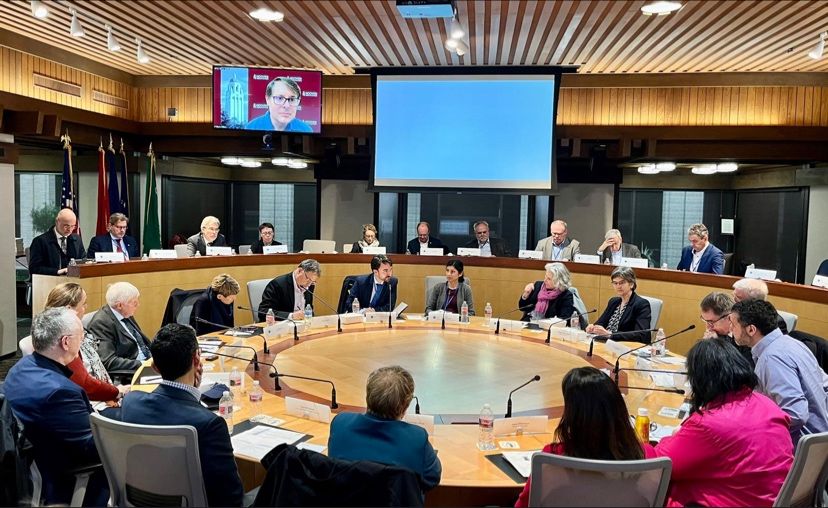 The group then walked over to the Hoover Institution, where participants took part in a substantive panel hosted by Norbert Holtkamp, Science Fellow at Hoover, on research security issues. The speakers included Glenn Tiffert, Kam Moler, Saurabh Anand, and Jessa Albertson. The important takeaway for our participants was the need to be vigilant about risks in international research partnerships, especially when research can yield technologies that can have adverse implications on national security. After a campus tour by Stanford German Student Association, participants spent the afternoon at Stanford Humanities Center, where they heard Ge Wang, Associate Professor of Computer Science and Music, reflect on his personal journey with AI and the need to think critically and humanistically about the uses of the technology.
The group then walked over to the Hoover Institution, where participants took part in a substantive panel hosted by Norbert Holtkamp, Science Fellow at Hoover, on research security issues. The speakers included Glenn Tiffert, Kam Moler, Saurabh Anand, and Jessa Albertson. The important takeaway for our participants was the need to be vigilant about risks in international research partnerships, especially when research can yield technologies that can have adverse implications on national security. After a campus tour by Stanford German Student Association, participants spent the afternoon at Stanford Humanities Center, where they heard Ge Wang, Associate Professor of Computer Science and Music, reflect on his personal journey with AI and the need to think critically and humanistically about the uses of the technology.
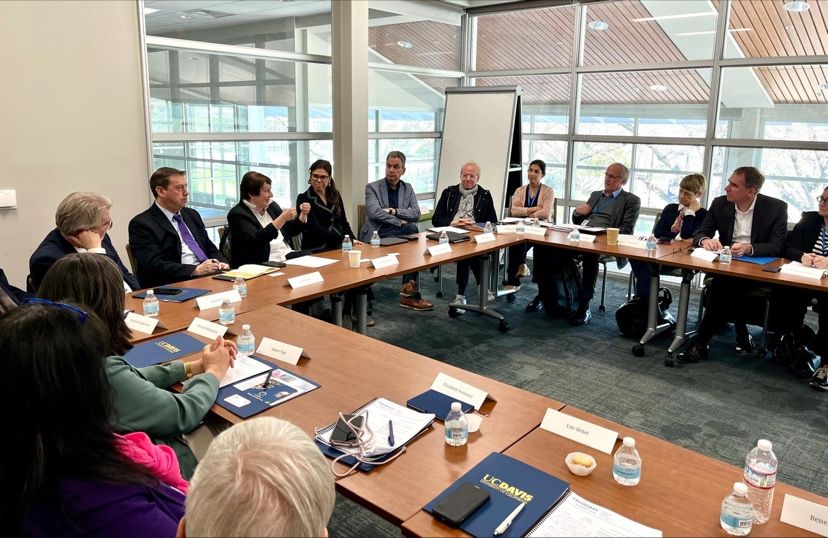 Following an action-packed day at Stanford, the group spent the next two at University of California, Santa Cruz and University of California, Davis where participants had the chance to learn about the focus areas of both campuses and establish seeds for potential partnerships. The delegation was inspired to learn about UC Davis’s Grand Challenges projects from Provost Mary Croughan and senior UC Davis leadership. At UC Santa Cruz, our delegation found innovative teaching methods that emphasize environmental and social considerations insightful. Included in the program was a visit to dolphins and sea otters at the UCSC Marine Mammal Lab — a stunning location right at the Pacific coast. During lunch, participants were greeted by Chancellor Cynthia Larive and senior UCSC administrators. Finally, the day concluded with a visit to Gray Area in the Mission, San Francisco, where participants heard from artists funded by the Goethe-Institut e.V. C/Change project and dinner at a local taqueria.
Following an action-packed day at Stanford, the group spent the next two at University of California, Santa Cruz and University of California, Davis where participants had the chance to learn about the focus areas of both campuses and establish seeds for potential partnerships. The delegation was inspired to learn about UC Davis’s Grand Challenges projects from Provost Mary Croughan and senior UC Davis leadership. At UC Santa Cruz, our delegation found innovative teaching methods that emphasize environmental and social considerations insightful. Included in the program was a visit to dolphins and sea otters at the UCSC Marine Mammal Lab — a stunning location right at the Pacific coast. During lunch, participants were greeted by Chancellor Cynthia Larive and senior UCSC administrators. Finally, the day concluded with a visit to Gray Area in the Mission, San Francisco, where participants heard from artists funded by the Goethe-Institut e.V. C/Change project and dinner at a local taqueria.
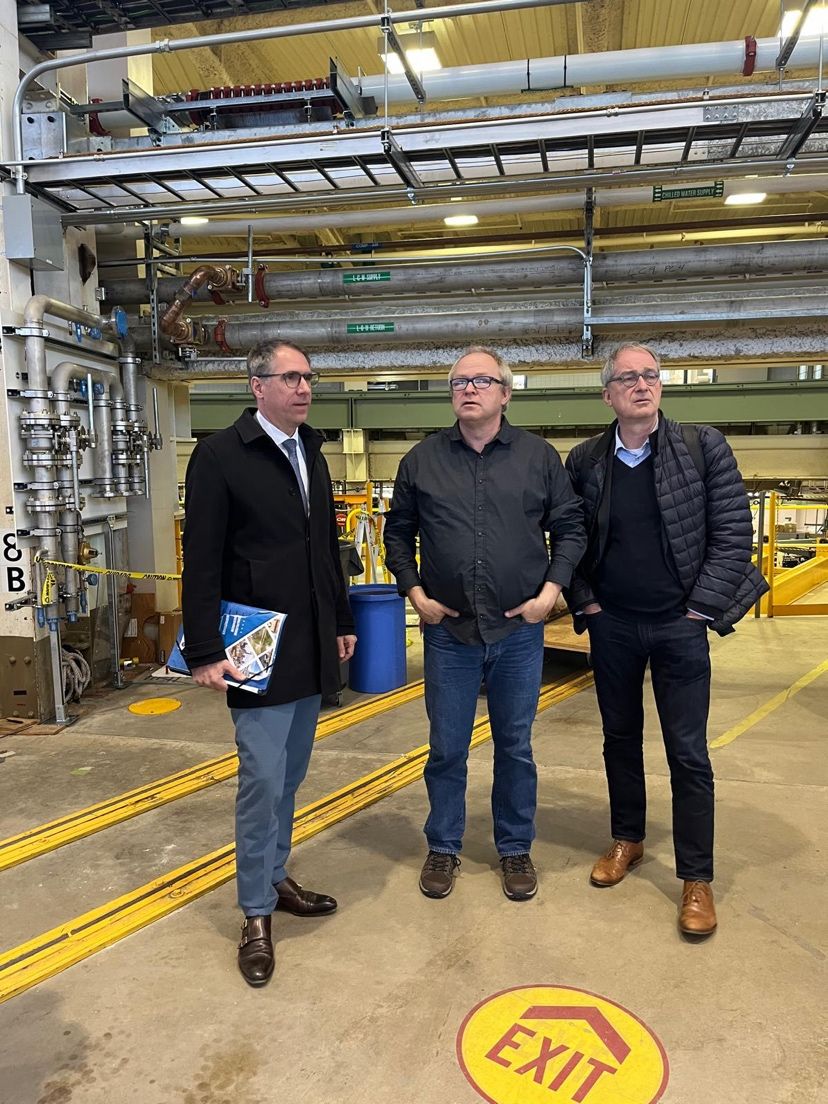 The final day of the Information Trip took place in Berkeley, where participants toured the Lawrence Berkeley National Lab and University of California, Berkeley. They learned about how important international partnerships are for scientific discovery, as well as the work that Bakar Labs Bioenginuity Hub does to foster research-to-innovation transfer. At Berkeley, the delegation also had the chance to see how deeply UC Berkeley works with Germany — the university hosts a German Historical Institute, supports a DAAD professorship, and contains the Institute of European Studies, which receives funding from the DAAD.
The final day of the Information Trip took place in Berkeley, where participants toured the Lawrence Berkeley National Lab and University of California, Berkeley. They learned about how important international partnerships are for scientific discovery, as well as the work that Bakar Labs Bioenginuity Hub does to foster research-to-innovation transfer. At Berkeley, the delegation also had the chance to see how deeply UC Berkeley works with Germany — the university hosts a German Historical Institute, supports a DAAD professorship, and contains the Institute of European Studies, which receives funding from the DAAD.
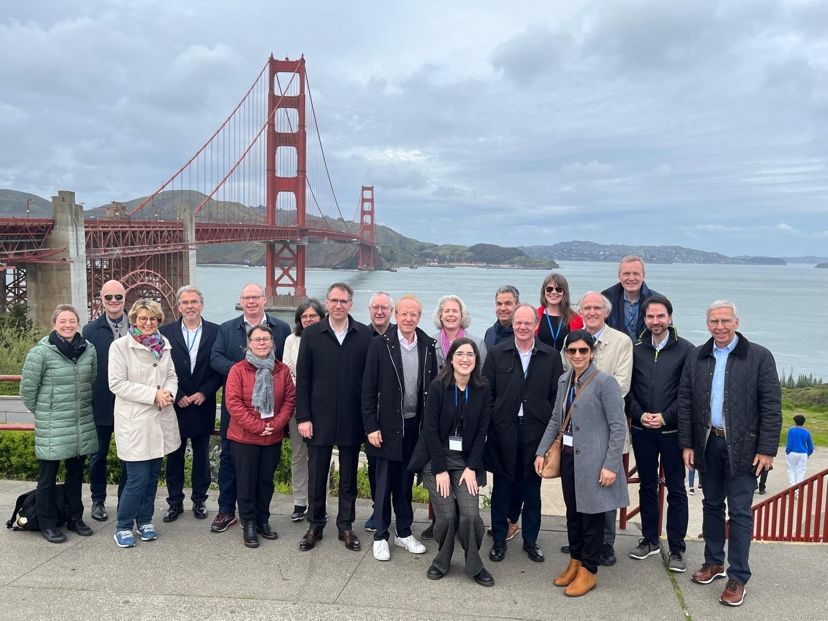 In the end, participants were eager to learn about how U.S. West Coast universities operate as well as the values, mindset, and culture that make our region unique. The week concluded with a final dinner on Fisherman’s Wharf in San Francisco, and the delegation returned to Germany with inspiration to enhance innovation at their universities.
In the end, participants were eager to learn about how U.S. West Coast universities operate as well as the values, mindset, and culture that make our region unique. The week concluded with a final dinner on Fisherman’s Wharf in San Francisco, and the delegation returned to Germany with inspiration to enhance innovation at their universities.
This information trip is organized by the International DAAD-Academy (iDA), the German Academic Exchange Service (DAAD), and the German Center for Research and Innovation (DWIH).
